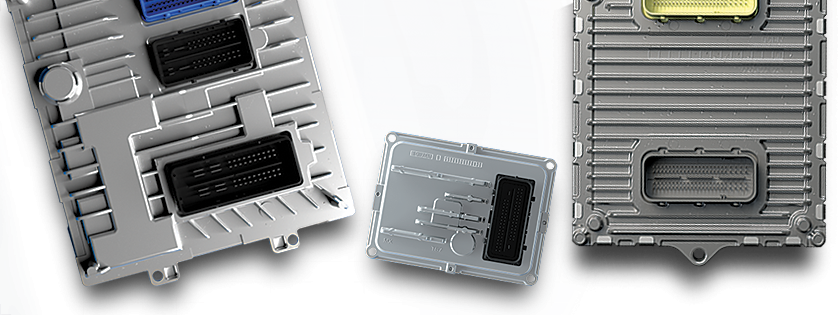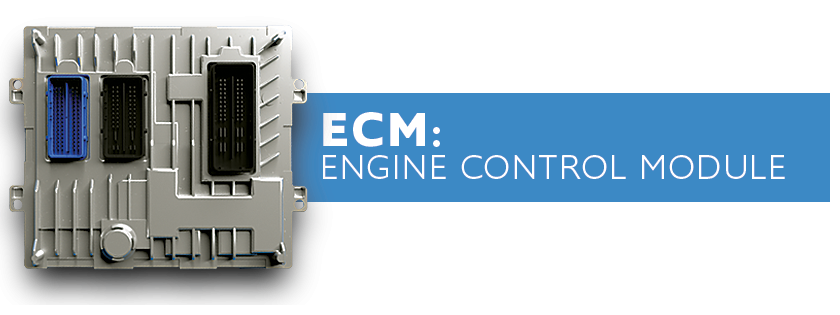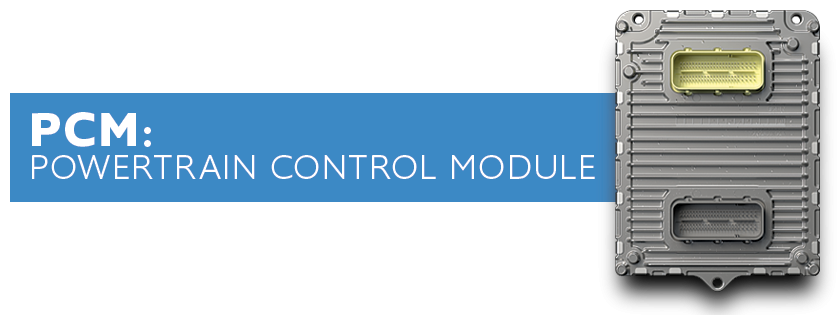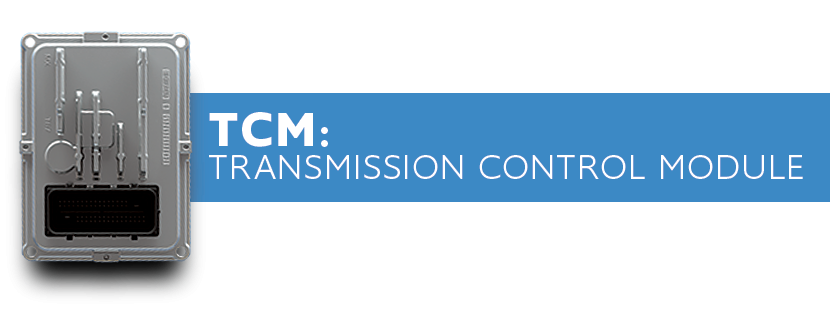Vehicle Control Module Cheat Sheet – ECM vs. PCM vs. TCM
Published on: March 9, 2023Categories: Education

There are countless acronyms floating around the automotive industry for everyone to remember. And this seemingly endless list continues to grow as automotive technologies evolve.
Ironically, we also use acronyms at HP Tuners, like MPVI, short for Multi-Protocol Vehicle Interface.
Some common automotive acronyms that often confuse users are the different vehicle control modules, specifically ECM, ECU, PCM, and TCM.
Here is a breakdown of the core vehicle control modules and the differences between them.
Contents:
– ECM: Engine Control Module
– ECU: Engine Control Unit
– TCM: Transmission Control Module
– PCM: Powertrain Control Module
– The Essentials
– Upgrading Your Control Module
ECM – Electronic / Engine Control Module

Engine Control Module, or ECM, is often referred to as the “brain” of an engine. Different sensors throughout an engine send data (inputs) to the ECM to digest. Then, it makes decisions (outputs) based on specifications from the vehicle’s calibration and operating behaviors. It sends instructions to other control modules that regulate things like ignition timing and throttle position.
At its core, an ECM’s purpose is to keep your engine operating in its intended manner.
ECU – Electronic / Engine Control Unit
ECM and ECU are used interchangeably and refer to the same thing, in most cases. Engine Control Unit, or ECU, is a broader term that also manages systems like air conditioning and cruise control.
So, why do some people use ECU while others use ECM? Different automotive manufacturers have adopted one term or the other causing drivers to also use one or the other. For example, Japanese and Korean auto manufacturers generally refer to their vehicle’s main controller as “ECU” while GM generally uses “ECM”.
Look at your vehicle’s manual to determine what your module is referred to by the manufacturer.
PCM – Powertrain Control Module

Powertrain Control Module, or PCM, manages all the moving parts in your engine like an ECM, but here’s the catch—it also usually manages the transmission. PCM = TCM + ECM.
However, they generally are not one physically combined unit—they can be two separate units housed together. But a PCM manages all the same systems that a TCM and ECM manage.
Most Dodge vehicles are equipped with PCMs that manage the engine and transmission. However, Dodge still calls the main engine controller a “PCM” even if they use a separate transmission control module (TCM) in a vehicle. Simply put, Dodge uses “PCM” interchangeably with “ECM”.
TCM – Transmission Control Module

The Transmission Control Module, or TCM, is the main controller for an automatic transmission. Like your vehicle’s ECM, the TCM digests data provided by sensors in the transmission and engine that monitor things like engine speed, torque output, oil temps, wheel speed, etc.
A TCM uses those sensor inputs to determine the optimal time to shift gears. However, manual cars don’t have a TCM because the driver makes those decisions based on the load and RPM.
A TCM directly impacts the driving experience. A transmission that up-shifts or down-shifts poorly not only contributes to less-than-ideal fuel economy but also cannot put its engine’s power to the pavement like it should.
Think of it like an experienced (ideal) manual driver. They know when to shift and how to shift well in all types of driving situations—they can take full advantage of the vehicle’s power.
The Essentials
These vehicle control modules are fundamental to managing any modern, ICE vehicle. A modern vehicle wouldn’t know how to manage or optimize its fuel system, ignition timing, or any other critical system that gets a vehicle from point A to B reliably—let alone get a vehicle down the drag strip faster than the competition.
This is true for electric vehicles (EVs) as well. However, the requirements and complexity of EVs and their Vehicle Control Units (VCUs), as they’re often referred to, are massively different from their ICE counterparts.
Regardless, just as a body cannot function without its brain, a vehicle cannot run without its main control module.
Upgrading Your Control Module
When a vehicle is tuned, a tuner makes calculated changes to specific parameters managed by the ECM, ECU, PCM, or TCM. The goal is to ultimately make a vehicle run more efficiently based on its applications/use (motorsports, towing, etc.). However, many late-model vehicles are driving off the assembly line with a controller that is inaccessible or “un-tunable”.
HP Tuners has several services that can upgrade select ECM, PCM, and TCMs on newer GM, Dodge, Polaris, and Ford vehicles so professional tuners can perform necessary diagnostics and calibration changes for optimal efficiency. This upgrade process prepares the ECM/PCM/TCM to accept tunes and allows things like scanning DTCs and data logging engine performance using VCM Suite software.

